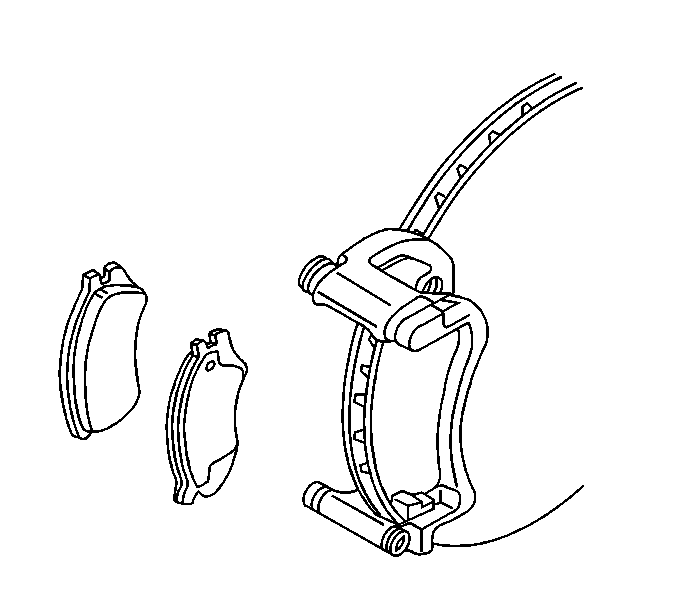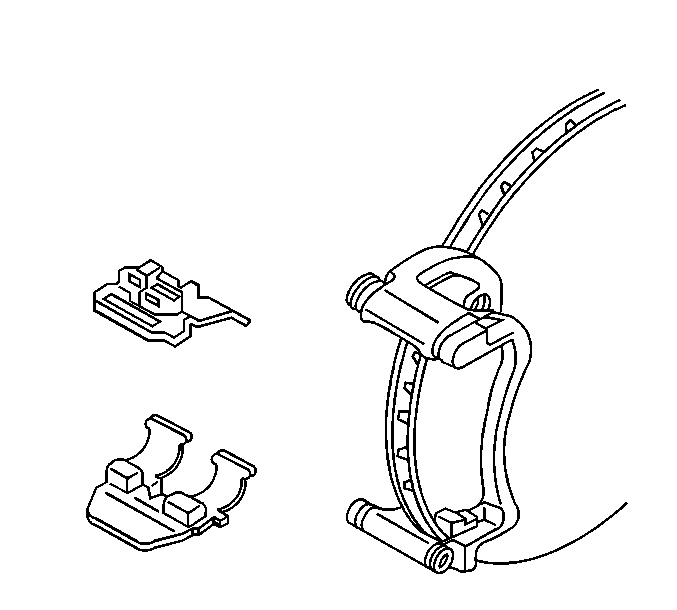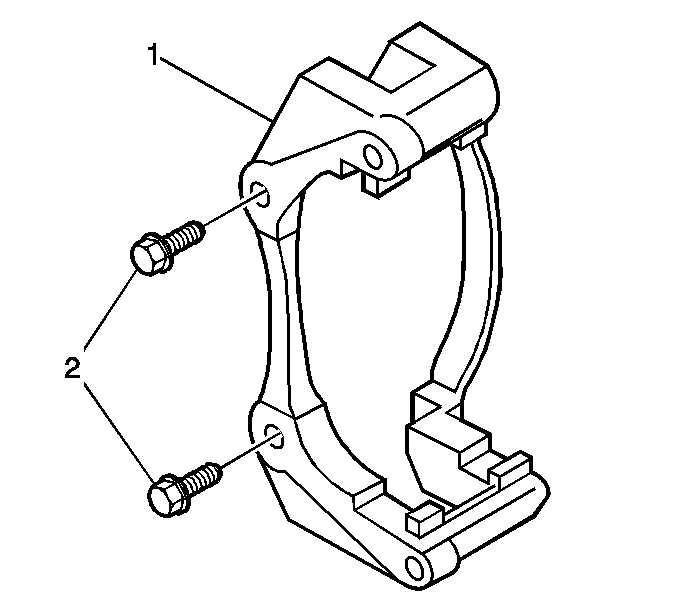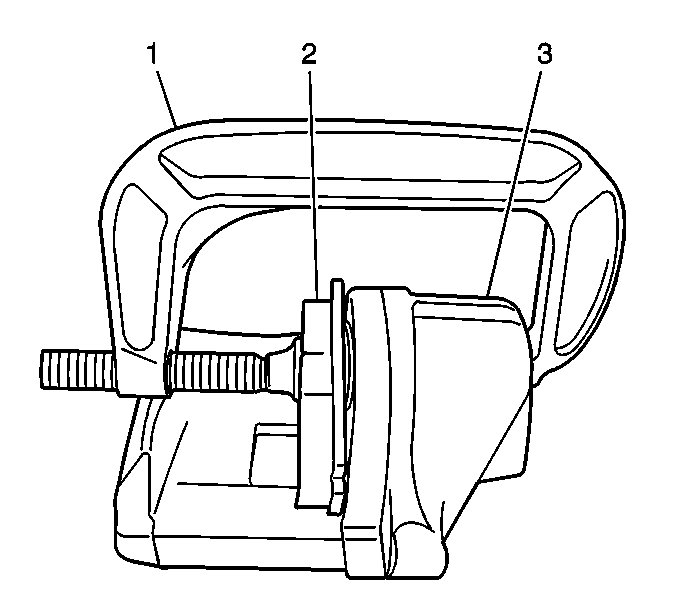Removal Procedure
Caution: Refer to Brake Dust Caution in the Preface section.
Notice: Support the brake caliper with heavy mechanic wire, or equivalent, whenever it is separated from its mount and the hydraulic flexible brake hose is still connected. Failure to support the caliper in this manner will cause the flexible brake hose to bear the weight of the caliper, which may cause damage to the brake hose and in turn may cause a brake fluid leak.
- Inspect the fluid level in the brake master cylinder reservoir.
- If the brake fluid level is midway between the maximum full point and the minimum allowable level, then no brake fluid needs to be removed from reservoir before proceeding.
- Raise and suitably support the vehicle. Refer to Lifting and Jacking the Vehicle in General Information.
- Remove the tire and wheel assembly. Refer to Tire and Wheel Removal and Installation in Tires and Wheels.
- Hand tighten 2 wheel lug nuts to retain the rotor to the hub.
- Remove the brake caliper. Refer to Brake Caliper Replacement .
- Remove the brake pads from the caliper bracket.
- Remove the retainer slides from the caliper bracket.
- Inspect the following parts for cuts, tears, or deterioration. Replace any damaged parts:
- Inspect the caliper bolts (2) and pins for corrosion or damage. Do not attempt to polish away corrosion. If corrosion is found, use new parts, including bushings, when installing the caliper.
If the brake fluid level is higher than midway between the maximum full point and the minimum allowable level, then remove brake fluid to the midway point before proceeding.



| • | The disc brake mounting and hardware - Refer to Disc Brake Mounting and Hardware Inspection . |
| • | The caliper dust boot - Refer to Brake Caliper Inspection . |
Installation Procedure
- Bottom the piston into the caliper bore. Use an old brake pad or wooden block (2) across the face of the piston. Do not damage the piston or the caliper boot.
- Install the retainer slides to the caliper bracket.
- Install the pads to the caliper bracket.
- Remove the 2 hand tighten wheel lug nuts that retained the rotor to the hub.
- Install the caliper. Refer to Brake Caliper Replacement .
- Install the tire and wheel assembly. Refer to Tire and Wheel Removal and Installation in Tires and Wheels.
- Lower the vehicle.
- With the engine OFF, gradually apply the brake pedal to approximately 2/3 of its travel distance.
- Slowly release the brake pedal.
- Wait 15 seconds, then repeat steps 8 and 9 until a firm brake pedal is obtained. This will properly seat the brake caliper pistons and brake pads.
- Fill the master cylinder reservoir to the proper level. Refer to Master Cylinder Reservoir Filling in Hydraulic Brakes.
- Burnish the pads and rotors. Refer to Brake Pad and Rotor Burnishing .



Important: When installing brake pads, the pad with the wear indicator must be installed in the inboard position against the piston in the brake caliper. When properly installed, the wear indicator will point upward with the caliper installed on the car. If the pad with the wear indicator is installed in the outboard position in the caliper, interference between the spare wheel and the brake caliper may occur if the spare is installed, and premature front brake lining wear may result.
